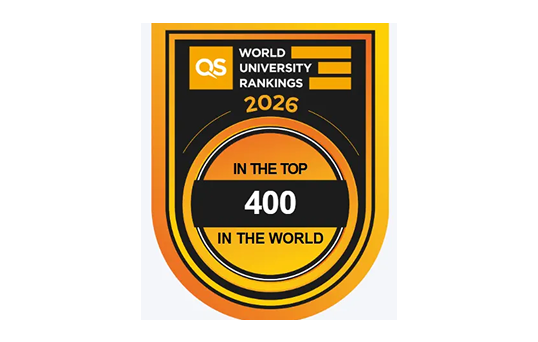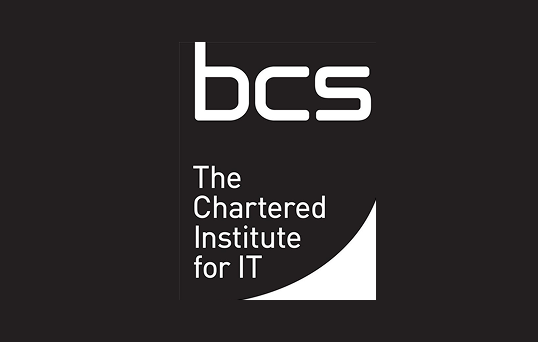

Bachelor of Science in Cybersecurity
BSc (Online)
Designed with industry leaders, our BCS-accredited programme equips you with hands-on cybersecurity skills, from coding and penetration testing to security analysis. Compete in real-world cyber challenges and gain future-ready AI and digital transformation skills.

January, May, September
Apply now for any date

Pay nothing up front with a UK government loan available for eligible students, or secure your place with a deposit and pay monthly or in instalments

Four years (part-time)
Flexible distance learning

Total tuition: £21,435 - no hidden costs
Why choose this programme


Professionally accredited: Accredited by the BCS, The Chartered Institute for IT.
Future-ready skills: Gain expertise in AI, digital transformation, sustainability, and leadership with Aston Power Skills, preparing you for the future of digital security.
No coding experience? No problem: No prior coding or A-level Maths is required—we take you from beginner to industry-ready.
Expand your professional network: Get free membership to Aston’s Computer Science Industry Club, connecting you with recruiters and tech leaders.
Industry-relevant: Designed with Aston’s Industry Advisory Board and the Computer Science Industry Club, ensuring your learning is aligned with the latest cybersecurity demands.
Compete in real-world cyber challenges: Test your skills in AstonHack a 24-hour hackathon where you’ll design, code, and problem-solve under pressure.
Hands-on cyber skills: Master coding, penetration testing, and security analysis through hackathons, simulations, and design challenges while developing key workplace skills like project management and communication.
Gold-standard teaching: Aston University’s Triple Gold rating in the Teaching Excellence Framework (TEF) 2023 recognises excellence in teaching, student experience, and student outcomes. This national recognition means you’ll learn from experts who connect theory with real-world practice, helping you graduate career-ready, confident, and equipped with the skills employers value most.
Globally accessible with flexible admissions: Wherever you are in the world, Aston University Online makes higher education within reach, with flexible study, monthly payment options, and non-standard entry routes that recognise the value of varied professional and educational experiences.
Top-tanked institution: Aston is #15 in the UK for Computer Science – Guardian University Guide, 2026, giving you a competitive edge in the job market.
Flexibility: Study anytime, anywhere—with no compulsory live lectures or fixed schedules. Focus on one module and one assessment at a time, allowing for deep learning while balancing work and personal commitments.
Supportive community: Learn within a small cohort and receive personalised support at every stage of your journey. With a globally inclusive learning environment, you’ll never feel like you're studying alone.
Meet the programme director
Welcome to the BSc Cybersecurity at Aston University. This programme will equip you with the practical skills and theoretical knowledge needed to thrive in one of today’s most critical fields. From coding and penetration testing to security analysis and governance, you will gain hands-on experience that prepares you to tackle real-world cyber challenges with confidence.
With my background in cybersecurity, privacy technologies, and distributed systems, I am passionate about helping students build both the technical expertise and the ethical foundation to succeed as future cybersecurity professionals, ready to make a real impact in the digital world.


Programme overview
This comprehensive online programme offers a deep dive into the evolving landscape of cybersecurity. You will explore the technical aspects of security dynamics and risk management and the human element that shapes cyber threats.
Our unique curriculum fosters a holistic understanding by strategically integrating core cybersecurity concepts with essential computer science skills.
This programme goes beyond theoretical knowledge. You will gain practical experience by engaging in simulated cyberattacks and defence exercises.
These exercises, designed to mirror real-world scenarios, will refine your problem-solving skills and provide valuable insights into the practical application of cybersecurity principles within the industry.
As an Aston Online student, you’ll enjoy free access to a vast range of journals, articles, and reports through Aston’s e-library - featuring major publishers such as Elsevier, Springer Nature, Taylor & Francis, Cambridge University Press, and Wiley.
What you will learn
- Gain a broad computing-based foundation: Our Cybersecurity (BSc) online programme provides a broad computing-based foundation emphasising security that cuts across a range of cybersecurity specialisations.
- Gain essential cybersecurity knowledge and skills: This programme equips you with essential cybersecurity knowledge and skills.
- Become a highly ethical, valuable professional: Our Cybersecurity (BSc) online programme establishes high ethical and professional values, making you highly attractive to employers and well-prepared for a rewarding career as a cybersecurity professional, adaptable to a wide range of employment opportunities.
- Enhance career preparation: You will be able to enhance your career preparation through a period of structured professional training.
Flexible payment plans and funding options

We are ranked in the top 5% of evaluated institutions
QS World University Rankings 2026
It’s been an exciting time at Aston University, with amazing new achievements that highlight our teaching excellence, outstanding student outcomes, and strong performance in global and UK rankings. Here are just a few highlights:
- Aston University is now ranked in the top 5% of global universities (top 5% evaluated institutions, QS World University Rankings).
- Aston University has been named the University of the Year for Student Success 2025 in the new Daily Mail University Guide.
- Aston University is 2nd in the country for Social Mobility (Higher Education Policy Institute).
And that’s just the beginning. Watch our video to discover more.
I have to say, I had a great experience doing my programme online. The online classes were very interactive, the lecturers were always accessible, and Blackboard (the learning interface) made it very easy to connect with other students from all over the world. The whole programme exceeded my expectations.


Career prospects
This BCS-accredited programme will position you at the forefront of an exciting field. This degree also boosts your career prospects by putting you on the path to professional recognition, such as Chartered IT Professional (CITP) status. Whether you aspire to work as a penetration tester, cybersecurity analyst, incident responder, software or network engineer or consultant, the Bachelor of Science in Cybersecurity (BSc) Online programme equips you with the skills that employers are desperately seeking.
Cybersecurity analyst: A cybersecurity analyst is an IT professional who safeguards an organisation's computer systems, networks, and data from cyberattacks. They are the digital detectives who monitor suspicious activity, investigate security breaches, and implement measures to prevent future attacks.
Technical consultant: A technical consultant is a problem-solver who uses their tech expertise to help businesses. They analyse an organisation's needs, recommend tech solutions, and implement them to improve efficiency or achieve specific goals. They often train employees and troubleshoot any issues that arise.
Information security analyst: An information security analyst is a cybersecurity professional focused on protecting an organisation's digital assets. They act as guardians of the company's data, identifying weaknesses in systems, and implementing security measures to prevent cyberattacks and breaches.
Penetration tester: A penetration tester, often referred to as an ethical hacker, is responsible for identifying and exploiting vulnerabilities in an organisation's systems. They simulate cyberattacks to test the effectiveness of security measures, helping businesses strengthen their defences against real threats.


Programme structure
Our Bachelor of Science in Cybersecurity (BSc) Online curriculum equips you with a comprehensive understanding of the field. You will delve into a wide range of topics, gaining the skills and knowledge to tackle cyber threats head-on, all at your own pace and convenience. Each credit of study is equivalent to 10 learning hours. For example, 30 credits reflect 300 hours of learning.
Modules
Object-oriented programming'%3e%3cpath%20d='M11%2013H5V11H11V5H13V11H19V13H13V19H11V13Z'%20fill='%231C1B1F'/%3e%3c/g%3e%3c/svg%3e)
30 credits
An introduction to object-oriented programming and an object-oriented approach to problem-solving. Grounded in a broad range of fundamental programming principles, you will be able to design and develop your own applications and be prepared for more specialised subsequent modules.
Mathematics & digital systems'%3e%3cpath%20d='M11%2013H5V11H11V5H13V11H19V13H13V19H11V13Z'%20fill='%231C1B1F'/%3e%3c/g%3e%3c/svg%3e)
30 credits
An introduction to the mathematical foundations required for computing and how they work in practice in digital systems.
Power skills and professional, social and business aspects of computing'%3e%3cpath%20d='M11%2013H5V11H11V5H13V11H19V13H13V19H11V13Z'%20fill='%231C1B1F'/%3e%3c/g%3e%3c/svg%3e)
30 credits
Unpack the importance of social, legal, ethical, and business aspects of computing required to become a successful computer scientist.
Cybersecurity fundamentals and applied cryptography'%3e%3cpath%20d='M11%2013H5V11H11V5H13V11H19V13H13V19H11V13Z'%20fill='%231C1B1F'/%3e%3c/g%3e%3c/svg%3e)
30 credits
You will learn common attacks on computer systems and established defence methods, alongside the application of cryptography. You will also learn about the properties of encryption algorithms and gain awareness of which cryptography method or tool can be applied as a suitable security control.
Learning outcomes
- Demonstrate computational thinking and problem-solving ability.
- Construct reliable and usable object-oriented computer-based systems.
- Recognise the legal, social, ethical and professional issues involved in the exploitation of computer technology and be guided by the adoption of appropriate professional, ethical and legal practices.
- Demonstrate knowledge and understanding of computer systems architecture and related technologies.
- Describe cryptographic, computability, mathematical and statistical principles, with a particular focus on cybersecurity.
- Explain the fundamental principles of cybersecurity in the context of the general computing environment.
- Apply advanced cryptographic methods as security controls.
Modules
Software engineering, data structures and algorithms in Java'%3e%3cpath%20d='M11%2013H5V11H11V5H13V11H19V13H13V19H11V13Z'%20fill='%231C1B1F'/%3e%3c/g%3e%3c/svg%3e)
30 credits
This module introduces essential facts, concepts, principles, theories, and contemporary approaches to facilitate systematic software specification, development, evaluation, and maintenance. Through a guided exploration of a range of commonly used data structures and algorithms, this module demonstrates the pivotal role data structures and algorithms play in modelling complex software systems.
Developing secure internet applications'%3e%3cpath%20d='M11%2013H5V11H11V5H13V11H19V13H13V19H11V13Z'%20fill='%231C1B1F'/%3e%3c/g%3e%3c/svg%3e)
30 credits
By understanding the fundamentals of secure web technologies, languages and architectures, web design principles, database technologies, and effective database design, you can engage effectively in secure web development in a range of popular technologies.
Secure network services & operating systems'%3e%3cpath%20d='M11%2013H5V11H11V5H13V11H19V13H13V19H11V13Z'%20fill='%231C1B1F'/%3e%3c/g%3e%3c/svg%3e)
30 credits
Cover the essential theories, components and implementations of how hardware and software devices are architected and brought to use, with a focus on networking, communications and operating systems. Cybersecurity and resilience will be a further key, transversal component.
Team project'%3e%3cpath%20d='M11%2013H5V11H11V5H13V11H19V13H13V19H11V13Z'%20fill='%231C1B1F'/%3e%3c/g%3e%3c/svg%3e)
30 credits
Explore design processes, documentation, software development lifecycles, and working as a team.
Learning outcomes
- Deploy measures to mitigate identified security threats to computers and networks.
- Communicate security problems and solutions to both specialist and non-specialist audiences.
- Construct and deploy secure internet applications incorporating a server-side database.
- Specify, document, develop and test reliable, secure and private computer-based systems using appropriate software engineering methodologies and tools.
- Demonstrate effective team development skills, recognising the different roles within a team and different ways of organising teams.
- Apply the fundamental theories and properties of networked computer systems and systems software in supporting the development of secure information systems.
- Select and apply methods, techniques and tools for information modelling, management and security.
Modules
Security governance and risk management'%3e%3cpath%20d='M11%2013H5V11H11V5H13V11H19V13H13V19H11V13Z'%20fill='%231C1B1F'/%3e%3c/g%3e%3c/svg%3e)
30 credits
Organisational security focuses on protecting organisations from cybersecurity threats and managing risk to support the successful accomplishment of the organisation's mission. Central to that is establishing, implementing and maintaining an information security management system. You will cover the core elements of information security management, namely risk management, risk perception, human factors, cyber awareness, security management and security governance.
Cybercrime and digital forensics'%3e%3cpath%20d='M11%2013H5V11H11V5H13V11H19V13H13V19H11V13Z'%20fill='%231C1B1F'/%3e%3c/g%3e%3c/svg%3e)
30 credits
An introduction to criminology theory that will help you understand adversarial behaviour. You will also cover the strategies and techniques of digital forensics to investigate cybercrimes. A greater understanding of these aspects helps identify and respond to cyberattacks. The module covers the tools and the gathering, documenting and preservation of evidence. It examines both procedural and technical aspects of conducting a digital forensic investigation to equip you with the technical know-how to derive evidence from various digital media and situations.
Software security'%3e%3cpath%20d='M11%2013H5V11H11V5H13V11H19V13H13V19H11V13Z'%20fill='%231C1B1F'/%3e%3c/g%3e%3c/svg%3e)
30 credits
You will cover the critical topic of developing and managing secure software, concentrating on three key themes: software architectures and languages, common software vulnerabilities, and secure software development and maintenance practices.
Individual project'%3e%3cpath%20d='M11%2013H5V11H11V5H13V11H19V13H13V19H11V13Z'%20fill='%231C1B1F'/%3e%3c/g%3e%3c/svg%3e)
30 credits
Learning outcomes
- Analyse the extent to which a computer-based system meets the criteria defined for its current use and future development, with a particular focus on security.
- Apply appropriate theory and practices and deploy tools for the specification, design, implementation, and evaluation of secure computer-based systems.
- Compare and contrast management techniques that may be used to achieve security and enterprise objectives within a computing context.
- Critically evaluate systems in terms of security and other quality attributes and possible trade-offs presented within the given problem.
- Analyse the security risks of information systems in a given context, and propose risk mitigations that recognise an organisation’s business objectives.
- Make informed decisions on the methods and issues involved in deploying systems to meet business goals subject to security threats.
- Define and complete an independent project that tackles a complex problem in the field of cybersecurity, demonstrating an ability to analyse, critically evaluate and develop a solution.
- Critically analyse the knowledge and methods from a variety of sources to solve cybersecurity problems.
- Design user-centred security techniques to address identified human-centred vulnerabilities in information systems.
The programme aims to:
- Provide a broad computing-based foundation with an emphasis on security that cuts across a range of cybersecurity specialisations.
- Produce graduates who possess essential cybersecurity knowledge and skills.
- Produce graduates who have high ethical and professional values.
- Produce graduates who are highly attractive to employers and well-prepared for a rewarding career as cybersecurity professionals, adaptable to a wide range of employment opportunities.
- Enable you to enhance your career preparation through a period of structured professional training.
*We may update our programmes to reflect best practices and academic developments. If we do, we’ll let you know of any changes at the earliest opportunity by updating our programme webpages. If you have already received an offer, we’ll write to you directly to let you know of the changes.
Unsure if you qualify?
Check your eligibility now or speak with our admissions team about alternative entry routes.
Is this programme right for you?
- You are interested in a career in cybersecurity and want to gain a strong foundation in both the technical and human aspects of the field.
- You are looking for a programme that provides a balance between theoretical knowledge and practical experience, through simulated cyberattacks and defence exercises.
- You want to earn a degree from a reputable university with a triple-gold rating for teaching excellence.
- You are a self-motivated learner who is comfortable working with complex technologies.
- You are interested in a flexible online programme that can fit around your work and personal commitments.
Entry requirements
We carefully design our entry criteria to ensure every student begins their academic journey with Aston Online equipped with the foundational knowledge, potential, and personal qualities needed to succeed in their chosen programme. Our standards are not merely a threshold for entry; they are set to support student success and uphold the quality of the learning experience. Each student joins an intellectually challenging, personally rewarding programme, aligned with employers' expectations and the global job market.
Standard entry requirements
A levels:
-
BBB (any subject) or BBC including one STEM subject
-
BBC or BCC including one STEM subject (with an EPQ or Core Maths* at grade B)
-
BCC or CCC including one STEM subject (contextual offer)
List of STEM subjects: Maths, Further Maths, Statistics, Physics, Engineering Science, Computer Science, or Electronics
*List of core maths qualifications we accept: AQA Certificate in Mathematical Studies, City & Guilds Certificate in Using and Applying Mathematics, NCFE Level 3 Certificate in Mathematics for Everyday Life, OCR (MEI)* Certificate in Quantitative Problem Solving, OCR (MEI)* Certificate in Quantitative Reasoning, Pearson Edexcel Certificate in Mathematics in Context, WJEC Eduqas Certificate in Mathematics for Work and Life and Level 3 Core Math.
You will need to provide:
-
Your ID
-
Copies of certificates
Contextual offers
Aston Ready is our contextual offer scheme that could reduce your undergraduate offer by one or two grades. Assessed at the point of application, there are no additional forms to fill in.
-
Extended Diploma and National Extended Diploma: DDM
-
Extended Diploma in Advanced Manufacturing Engineering with an overall grade of Distinction
-
National Diploma and Diploma: DM plus 1 A-level at minimum Grade B
-
Diploma in Advanced Manufacturing Engineering with an overall grade of Distinction
-
Foundation or 90 credits Diploma: DM plus 2 A-level minimum Grade B
-
National Extended Certificate or Subsidiary Diploma: M plus 2 A-level minimum Grade B
-
Certificate/National Certificate Level 3: Not accepted
-
31 overall points with 5, 5, 5 in Higher Level subjects
The following T levels are accepted qualifications for this programme:
-
Accounting Grade D
-
Agriculture, Land Management and Production Grade D
-
Animal Care and Management Grade D
-
Building Services Engineering for Construction Grade D
-
Catering Grade D
-
Craft and Design Grade D
-
Design and Development for Engineering and Manufacturing Grade D
-
Design, Surveying and Planning for Construction Grade D
-
Digital Business Services Grade D
-
Digital Production, Design and Development Grade D
-
Digital Support Services Grade D
-
Education and Childcare Grade D
-
Engineering, Manufacturing, Processing and Control Grade D
-
Finance Grade D
-
Hairdressing, Barbering and Beauty Therapy Grade D
-
Legal Services Grade D
-
Maintenance, Installation and Repair for Engineering and Manufacturing Grade D
-
Management and Administration Grade D
-
Media, Broadcast and Production Grade D
-
Onsite Construction Grade D
-
Health Grade D
-
Healthcare Science Grade D
-
Science Grade D
Additionally to our Level 3 requirement, you will also need to have achieved:
GCSE Maths Grade C/4 and English Grade C/4 and above.
Non-standard entry routes
We take a holistic approach to evaluating applications, considering both your academic background and professional experience. If you don’t meet the standard entry requirements, you may still be considered if you’re:
-
Aged 21 or over
-
Can demonstrate strong professional achievements
-
Have three years of work experience in a related field
-
Have the relevant qualifications
You will need to provide:
-
A professional reference
-
Your curriculum vitae (CV)
-
A personal statement detailing your motivations for undertaking this programme and how your background, qualifications, and experiences will help you meet its demands
-
If available, any other academic or professional qualifications, level 3 or above
Get in touch with a Student Advisor to check if you're eligible to enrol: enquiries@astononline.ac.uk.
International students
Every year, students from over 120 countries choose Aston, bringing with them a wide range of international degrees and qualifications. We recognise this diversity while maintaining rigorous academic standards, reflecting the global business landscape our graduates lead in.
A Student Recruitment Advisor can assess your degree equivalency on your behalf as part of the application process. You can also explore recognised qualifications by region, including Africa, the Americas, Asia, Europe, and the Middle East, here. For personalised advice before applying, contact our Admissions Team at enquiries@astononline.ac.uk.
English language requirements
Applicants whose first language is not English must provide evidence of a recognised English language qualification, taken within the last two years and accepted by Aston University. If needed, we can provide an internationally accredited online English Language Assessment, which you can discuss with your Student Recruitment Advisor during the application process.
We accept a wide range of English language qualifications, including:
-
IELTS Academic and IELTS Academic Online
-
IELTS One Skill Retake
-
TOEFL and TOEFL iBT
-
Oxford ELLT (Global and Digital)
-
Pearson Academic (PTE)
-
Password Test
-
Language Cert International ESOL SELT
-
Kaplan Test of English (KTE)
-
Cambridge Advanced Test (CAE)
-
Cambridge Proficiency Test (CPE)
Find out if you qualify
If you have any questions about your eligibility or the application process, please get in touch with the Aston Online Admissions Team:
Email: enquiries@astononline.ac.uk
Call: +44 (0) 121 824 6374
Our office is open Monday to Friday, 09:00-17:00 GMT
FAQs
Why study Bachelor of Science in Cybersecurity (BSc) Online with Aston University?
Our Bachelor of Science in Cybersecurity (BSc) Online programme prepares you for a successful career in the fast-growing cybersecurity industry.
You'll delve into security dynamics and the art of risk management and explore the human factors that shape cyber threats. You will gain a holistic understanding of cybersecurity, as the curriculum uniquely intertwines cybersecurity concepts with the power of computer science skills.
Are there any prerequisites or foundational knowledge required before starting the Bachelor of Science in Cybersecurity (BSc) Online programme?
UK entry requirements or international equivalent entry requirements:
- A Levels: BBB (standard offer)
- BBC if Grade B is achieved in EPQ or Core Maths, or
- BCC (contextual offer).
List of Core Maths qualifications we accept:
- AQA Certificate in Mathematical Studies.
- City & Guilds Certificate in Using and Applying Mathematics.
- NCFE Level 3 Certificate in Mathematics for Everyday Life.
- OCR (MEI) Certificate in Quantitative Problem Solving.
- OCR (MEI) Certificate in Quantitative Reasoning.
- Pearson Edexcel Certificate in Mathematics in Context.
- WJEC Eduqas Certificate in Mathematics for Work and Life and Level 3 Core Math.
What happens if I decide to withdraw?
If you withdraw from your studies, you may still have fees to pay. Please check the fee liability in section 4.7 of the Tuition Fee Charging Policy here.
How will I be assessed?
You will engage in a variety of regular formative and timetabled summative assessment activities, where assessment modes and formats closely mirror relevant professional and industry contexts.
- Formative assessment set by the module content will include short tasks, knowledge tests, and production of outcomes to check knowledge and competence.
- A combination of tutor-graded practical coursework assignments and projects will be used to provide a structured summative assessment for each module.
- In all assessments, you will benefit from detailed assessment rubrics provided from the beginning of the module to guide your effort and achievement.

Download brochure
Don’t hesitate to reach out! Our friendly admissions team is ready to answer your questions and offer personalised guidance on eligibility and funding options.










